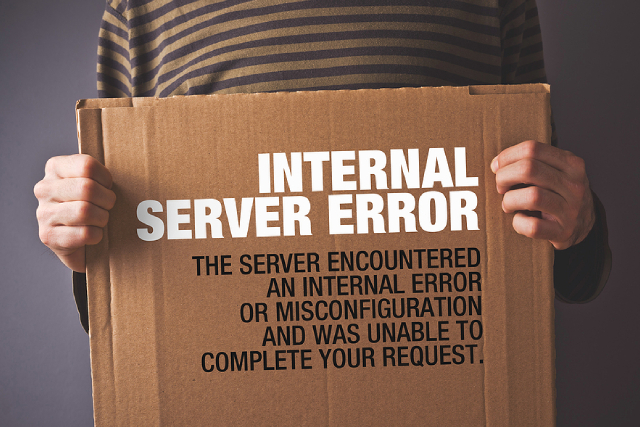
You’ve probably heard countless times about how important it is to upgrade your host servers. Whether you’re running a small blog or a booming online store, good hosting is like the foundation of your digital home. It holds everything together, ensures your visitors can always access your site, and keeps your data safe. Yet, as often as we hear about server upgrades, what’s less talked about is what actually happens if you don’t act and your hosting server crashes.
It might seem like something distant, something that happens to other businesses. But server crashes are more common than you think, and when they strike, the consequences can range from mild inconvenience to major business losses. Let’s take a closer look at what really happens during a crash, why it occurs, and how you can protect your site by making smarter choices.
So, what exactly happens when a server crashes?
When a hosting server crashes, it essentially means that the machine running your website either stops working properly or goes offline completely. Think of it like your laptop freezing or shutting down without warning but on a much larger and more serious scale.
In the moment of a crash, every website and application hosted on that server can become unreachable. Visitors trying to access your website might be greeted with error messages like “500 Internal Server Error” or “Site Cannot Be Reached.” If you run an e-commerce site, this could mean missed sales, frustrated customers, and potentially even long-term damage to your brand reputation.
If the crash is due to a hardware failure – such as a broken hard drive, overheating, or faulty memory – recovery can be especially difficult. In some cases, if there isn’t a solid backup plan in place, critical data might be lost forever. If it’s a software issue, like a misconfigured update or a resource overload, your hosting provider might be able to fix it more quickly. But either way, downtime hurts.
Why do hosting servers crash?
Several common causes can lead to a server crash, including:
- Hardware failure: Just like any physical device, servers have components that wear out over time.
- Traffic overload: A sudden spike in visitors, perhaps from a viral post or sales promotion, can overwhelm a server that’s not built to handle it.
- Software bugs: Poorly coded applications, plugin conflicts, or untested updates can introduce vulnerabilities or errors.
- Cyberattacks: Hackers may launch DDoS (Distributed Denial of Service) attacks to flood your server with traffic and cause it to shut down.
- Power outages: Although most data centres have backup generators, prolonged outages can still cause serious trouble.
- Neglected maintenance: Servers need regular updates and patches to function securely and efficiently. Without this care, they become increasingly fragile.
This is why you should upgrade your web hosting plan when you start noticing signs of strain, such as slower loading times or more frequent downtime.
How a crash impacts your business
A hosting server crash is an inconvenience that can have wide-reaching consequences:
- Revenue loss: Every minute of downtime could mean lost sales. For bigger businesses, even a few minutes offline can translate to thousands in losses.
- Customer trust: Visitors expect websites to be available 24/7. If your site is down often, people may start looking elsewhere.
- SEO rankings: Search engines like Google monitor website reliability. Frequent downtime can negatively affect your search rankings, making it harder for potential customers to find you.
- Data loss: If backups aren’t in place, a crash could permanently erase crucial files, customer information, and content.
- Brand image: Consistent technical issues can tarnish your brand’s credibility. Customers want to work with businesses they can trust, and frequent outages send the wrong message.
How to prevent hosting server crashes
The good news is, there are steps you can take to drastically reduce your risk of experiencing a crash. Choosing the right website hosting services is the first and most crucial move.
1. Choose a reliable hosting provider
Not all hosting companies are created equal. Look for providers that offer 99.9% uptime guarantees, robust support services, and scalable hosting plans. You’ll want someone who monitors their servers 24/7 and has quick-response teams ready if anything goes wrong.
2. Invest in dedicated or VPS hosting
Shared hosting is budget-friendly but risky. If another site on the same server crashes or experiences high traffic, your site could suffer, too. Dedicated hosting or Virtual Private Server (VPS) hosting isolates your resources, giving you more stability and control.
3. Regularly update software
Whether it’s your website CMS (like WordPress), plugins, or custom code, keeping everything updated ensures you’re protected against known vulnerabilities that could cause crashes.
4. Monitor website traffic
Using monitoring tools can help you predict traffic spikes and prepare accordingly. Some website hosting services offer automatic scalability so that you’re less likely to crash during a surge.
5. Backup, backup, backup
Automated daily backups can be a lifesaver. In the event of a crash, you can quickly restore your site to its previous state with minimal data loss.
Why dedicated hosting helps
Dedicated hosting essentially means your website has an entire server all to itself. This approach gives you better performance, enhanced security, and, most importantly, significantly reduces the risk of crashes caused by other users’ activities.
Since you’re not sharing resources like CPU, RAM, or bandwidth with other websites, your site can perform at its best, even during peak periods. Many businesses that experience steady growth or sudden spikes in traffic find dedicated hosting the most reliable way to support their needs long-term.
Conclusion
While server crashes might not be the most glamorous topic, understanding them and taking action to prevent them could make all the difference for your website and business. It’s all about having the right support, the right infrastructure, and a little forward planning.
If you’re looking for dependable website hosting services that put your website’s uptime and performance first, consider HostSG. As an ISO 9001:2008 certified hosting company in Singapore, HostSG offers high-quality, reliable hosting plans designed to keep your business online and thriving. Explore your options today and give your website the solid foundation it deserves.


